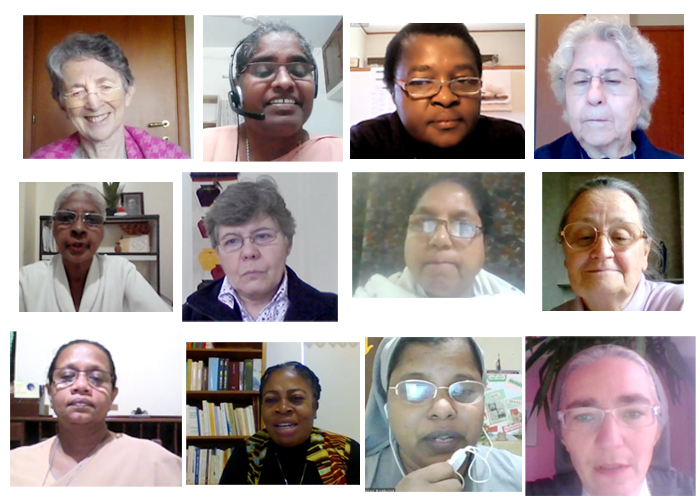30/11/2021
Capitulant for the Whole – or just for my part?
Reviewing the ground covered since Feb -March, Matthieu challenged all to a self-evaluation. As Capitulants, were they concerned for the vitality of the whole Body? Were they able to sustain an inner state of discernment? Are they aware that this role is different from any other role they may fill? He invited them to ask themselves the necessary questions: What is the role of a Capitulant? What do I need to do when I step into this role? What do I need to leave behind in order to be fully committed to this responsibility?
An invitation to a time of “self-reflection”- to sense and to really enter in faith, gradually connecting deeply with self.
Two things to consider:
- Being a Capitulant
- The Phase of discernment
Four questions for personal reflection:
- To what degree have I stepped into the role of Capitulant? How much am I still operating from the perspective of my part of the Body?
- What preoccupations have held me back from looking at things from the perspective of the Whole?
- What might I have missed from what some of my Sisters have been sharing?
- What other key elements of a discernment process have we overlooked?
After reflecting on their experience of the journey, some responses:
- We are a group representing one Body – one system
- We are “sensing and presencing” (Theory U) what is resonating as an embodiment of the whole
- Making a journey together through our reflection and discernment
- We are rooted in our personal commitment as capitulant with self-awareness.
Challenges of focusing on the role:
- Collegial commitment is an issue because of the language and culture differences. But there are intangible ways of connecting with one another, even though meeting and conversations are limited.
- Questions about the quality of generative listening if we are preoccupied with preparing reports
- There has been a certain tension, sense of urgency, time to let go and go forward, Sisters are expecting something new from us
- There is a certain failure to be fully open to the process with concern for the future.
- Have we moved away from what is essential, some resistance to the process and the way it’s going?
- Sense of pressure in participating and managing zoom and technical aspects.

The second part of today’s session consisted of a return to the reports done by eight different groups since Feb-March: Interculturality, Mission and Missionary call, Formation, Finance, Structures, Vicariate Structure, Units in the dusk of Life, and the PBN Family.
The Capitulants were divided into eight new groups to study these themes – however, care had been taken by the Facilitators to make sure that no-one was assigned to a topic she had previously worked on.
After reading and reflection on the document, the group task was to see how much the proposals of this particular group match the critical situation of the Body - and what is still missing?
Time was given for personal space and group sharing. The last hour was hearing session in the plenary.
In general, the groups were appreciative of the work done by the various teams; there was, however, a sense that some of the reports had not gone far enough in making practical proposals capable of making a real difference or lifting the body from its critical situation. Further work on these topics would seem to be indicated.
